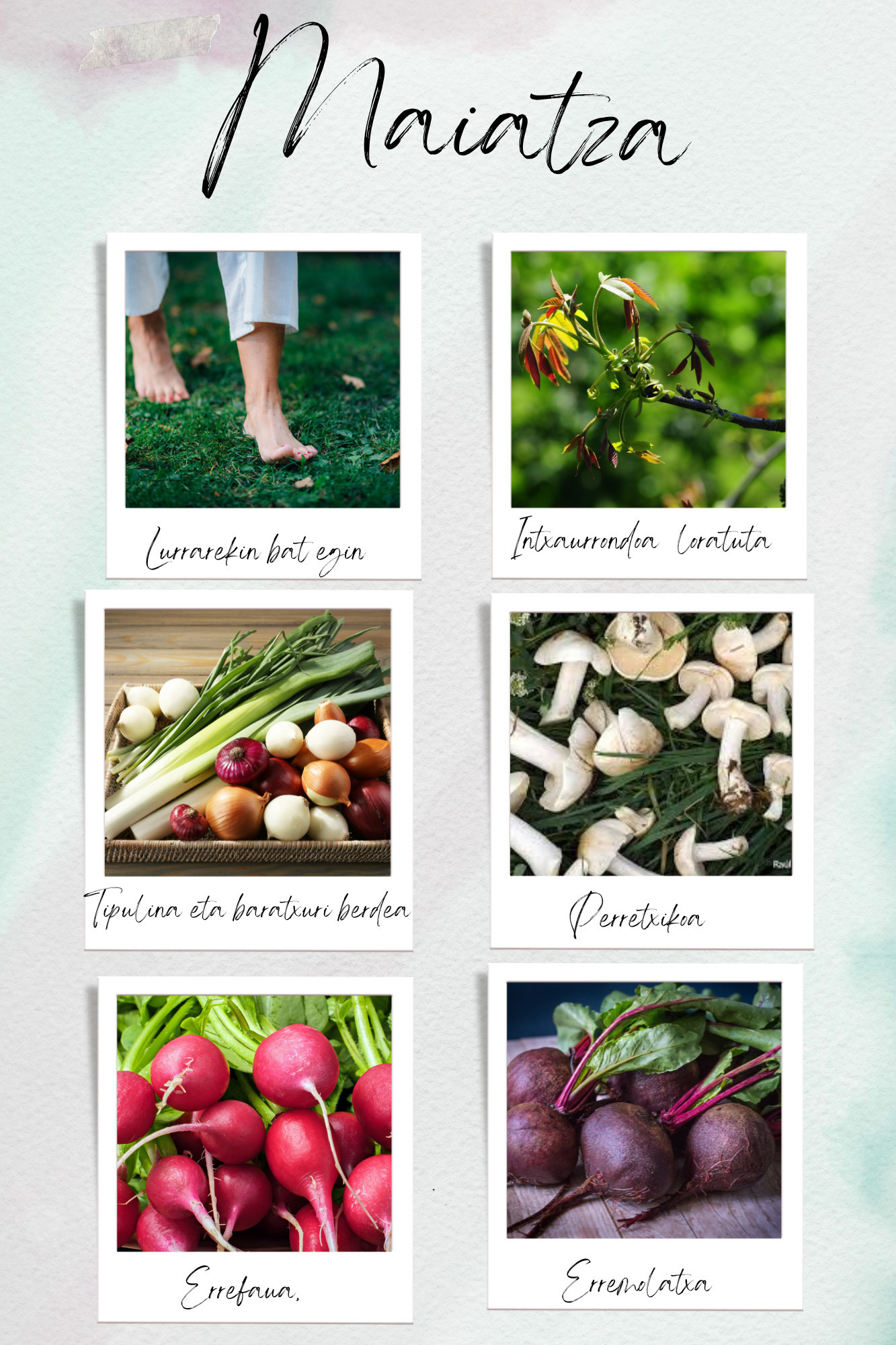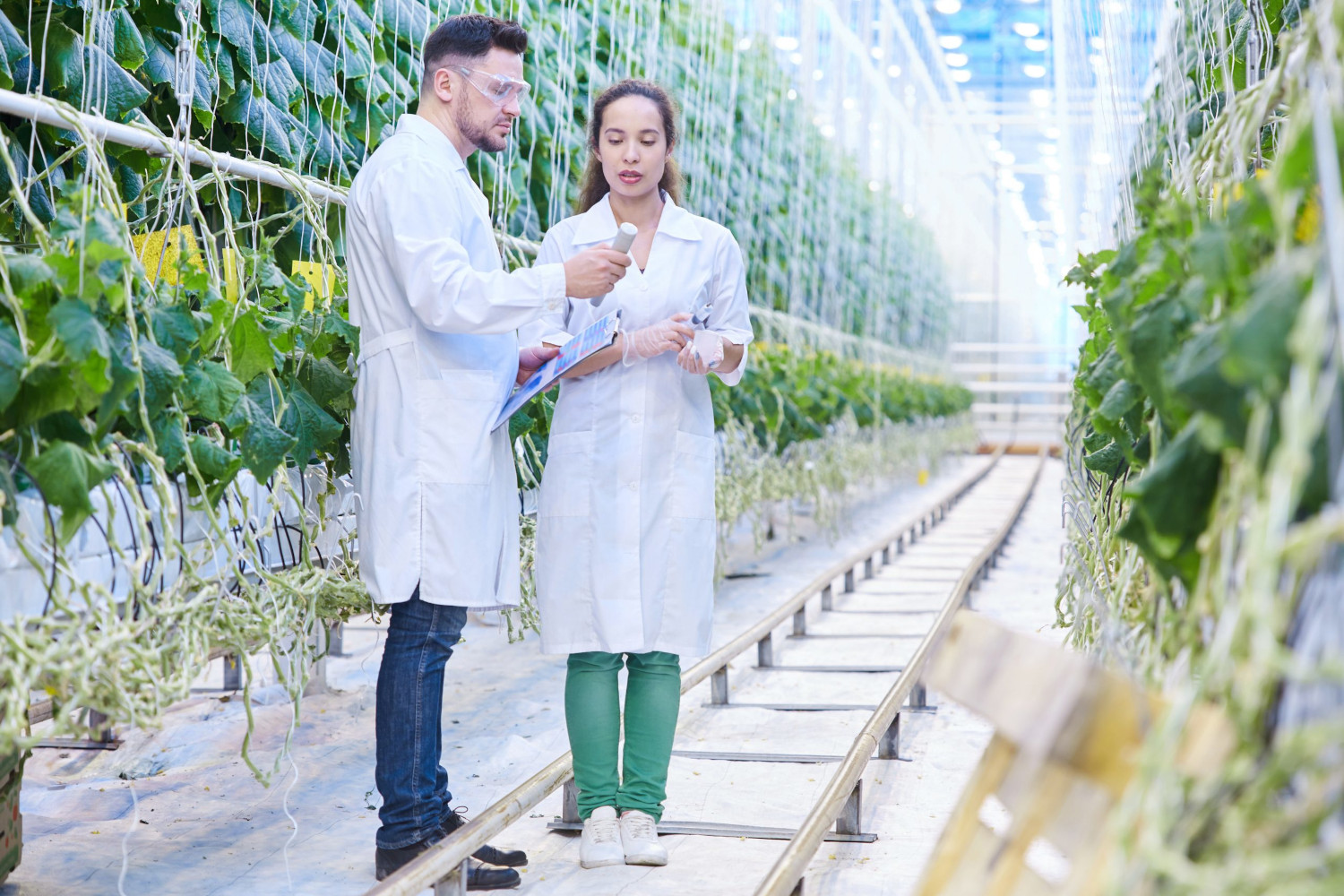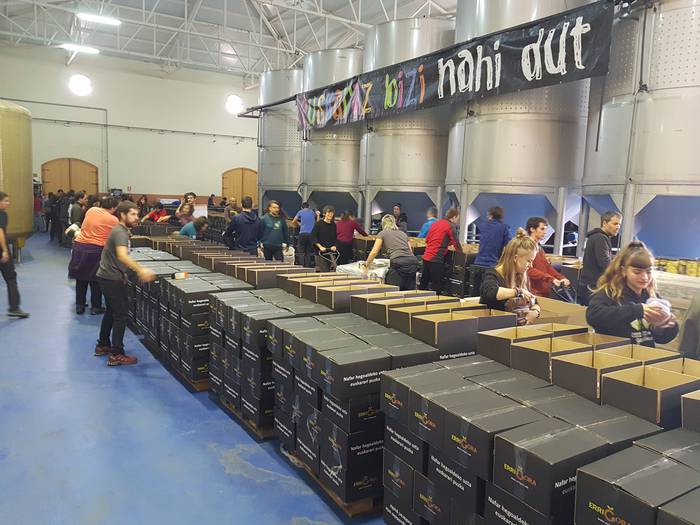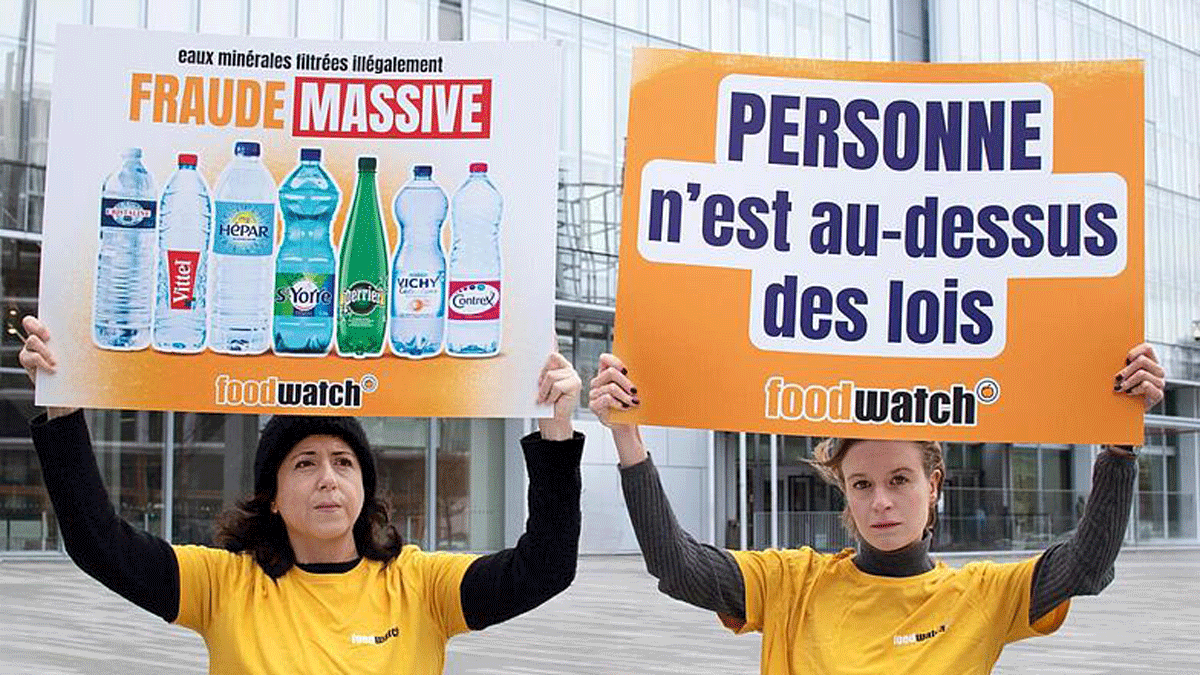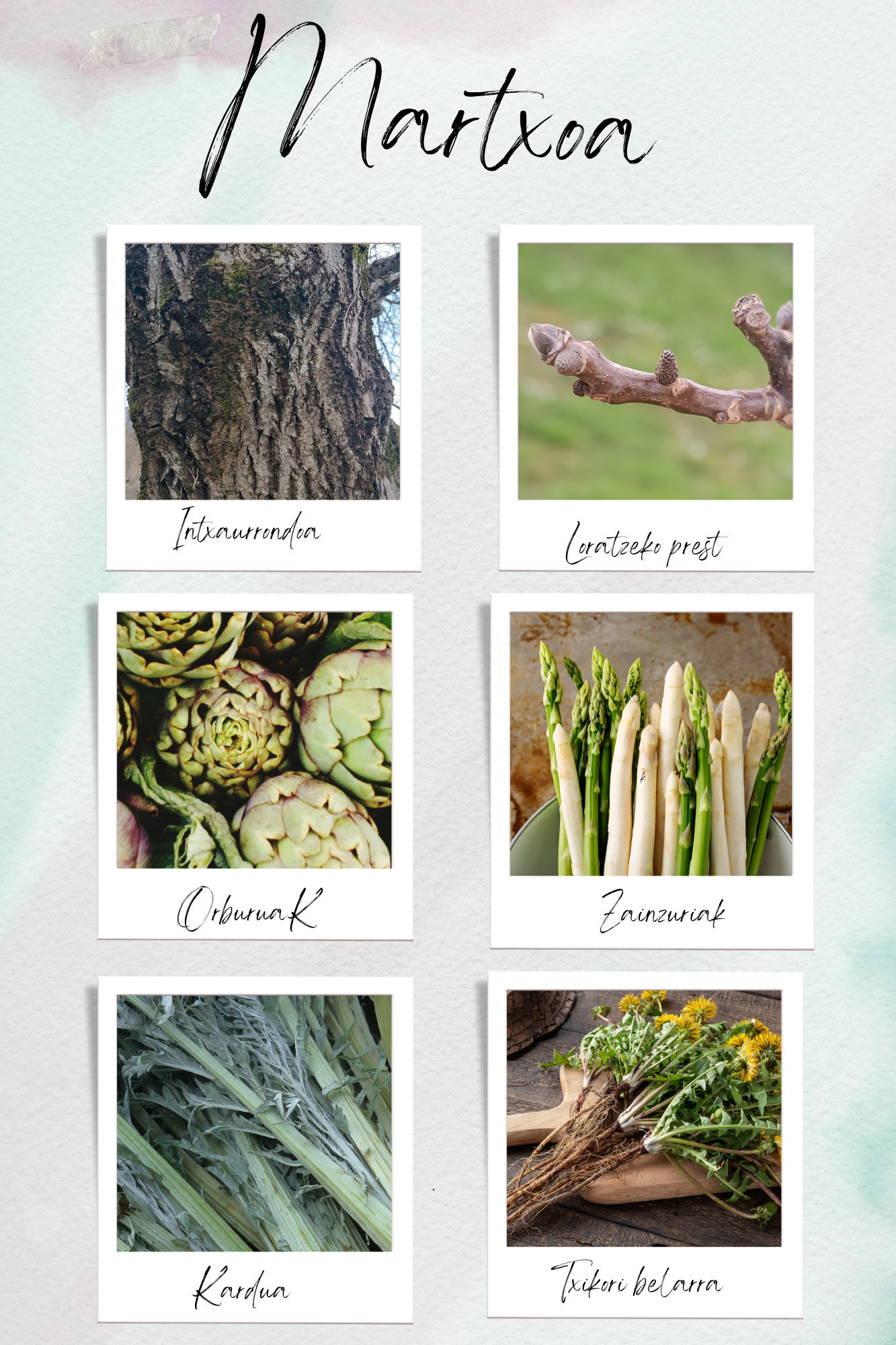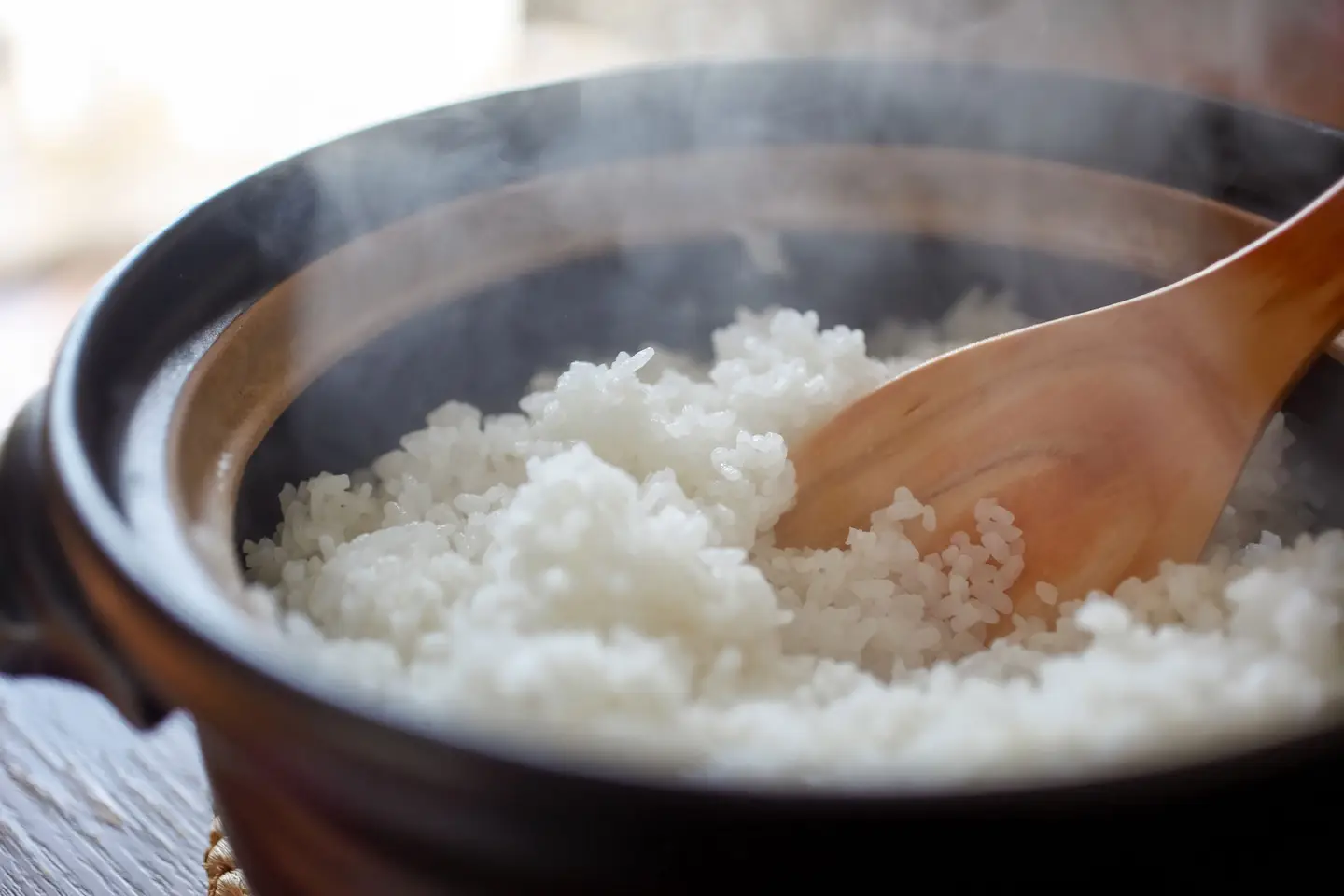"Food is a language, an alternate epistemology."
- They know him well in the County of Pamplona, but I was surprised to see the food facilities of Ana Laura Duarte, first in the Citadel of Pamplona and a week later in a park in Huarte, in mid-June. The two facilities were ephemeral: we ate everything. Duarte is clear: when we eat together we do much more than we eat.

Ana Laura Duarte (1983, Montevideo Uruguay)
He currently lives in Pamplona. It combines collaborative artistic practices, hybrid experiences and collective and relational instances. It works food and cooking in its multidimensional character. Fermentation in the center analyzes the relationships between species and edible ecology. In this sense, he has developed projects such as a ferment opera, a ferment tour with Las Polish Fermentos, and currently another project called “Fermentos para el fin del mundo”. In networks: @duarte.ana.laura_
To start with, would you introduce yourself?
I'm from Uruguay, but I left there 12 years ago. It's a beautiful country and I love it, but after I finished my studies, I wanted to go see what was going on. I spent five years in Buenos Aires. The passion of that country opened me up and I came here.
Directly to Pamplona?
I first went to Madrid. In 2018, I did here a year, and I came back three years ago. I have been in Pamplona for four years, but I have also been in Madrid and Brussels. I move through projects, as things come up. I started art studies, I didn't finish them, and then I studied stage design and theater costumes. I was doing that in Buenos Aires, but when I got to Europe, I started doing other practices. I started working with fermentation and a world opened up to me.
What drew you so much?This
is a fermentation technique that is not new and has long been used for food conservation. There are recipes that work and everything is perfect. But I was attracted to the world of bacteria: what relationships and communities they create. There are millions of bacteria: in the soil, in the skin of vegetables, in our organism, in the ferments, etc. As I was doing a workshop, I thought: here we are all, it's a relationship between species, and I was amazed.
What did they do in the workshops?
They were very practical. In the beginner's workshops, for example, we would mix and prepare the ferment together, and each of us would take the pot home. We understood the fermentation process: what bacteria would reproduce, what would happen after eating… Those foods are alive and transformed.
"To graze you need seasonal fruits or vegetables and salt. Everything is amassed, and in this process food emits liquid, its internal structure changes. This is an anaerobic process."
What do you have to do to ferment food?
Seasonal fruits or vegetables and salt are needed. Everything is amassed, and in this process food emits liquid, its internal structure changes. It's an anaerobic process. The liquid is deposited on the surface of the amassed mass and left to be fermented for at least two weeks. After that you can eat. But of course, it's a probiotic food, it's alive, and things happen. It starts to drip, it rots, it smells, some boats explode...
I know you also made a ferment opera.
Yes, we did it once in Montevideo, and then in the Huarte Center, within the Ekoiztu program. The result was not perfect, but the process was beautiful. Together we prepare the ferments. I love that, creating ephemeral communities to do things. Emotional bridges are built, and that's great, beyond places where there's no emotional culture. Then we took some microphones to see what we can hear from this transformation of food.
Do you want to continue working on this
path?In Huarte, thanks to the Produktu program, I bought a microscope and entered more into it: how bacteria and others move. The next step will be to introduce all of that, to put a table with ferments, to have people eat them and to record all of that. Playing with the presence and relationship of bacteria.
You also made a project with one of your cousins around all this, creating the collective Las Polish Fermentos.
We made a fermentour, a ferment tour. We went to Italy, to Lebanon and to Egypt. A week after our arrival in a city. We were doing a workshop to prepare ferments with people. The fermentation process is known all over the world, but co-form in a natural and ephemeral way, not so much. And working in a given territory was also very powerful: their food, their water, their salt. We came back without a room, but the experience, uh!
.jpg)
My mother's family is from
Lebanon, and my cousin and I had the opportunity to participate in the Saura social uprising in Lebanon. Saura means revolution. We were in the village cacerolas, those projects were already organized, but for us it was important.
Or, another example, through the Palestinian cultural center Dar el Nimer, we offered a workshop at the Borj Al-Barajneh -- a Palestinian refugee area in southern Beirut. It was a project of older ladies, at Teta’s Kitch, and it was amazing that we were talking about fermentation time, and those women had been waiting for sixty years to come back: it was hard. These change you, and I think that's the fermentation in the background: we all change.
Returning to Pamplona, he has launched the project “Fermentos para el fin del mundo”. He also developed a workshop in the La Zurda space.
Yes, the workshop intended to build a community through fermentation actions, both real and metaphorical. We learned to ferment and take care of our resources. By creating ferments, we joined forces as political agents. This society forces us to forget our tradition and community consciousness and to grow individually, within privilege. We consume without the ability to question ourselves. In my opinion, acting with hands and together is an act of peaceful resistance.
Could you tell me about La Zurda?
Yes, it was a very nice project, created among several women. The cultural association is alive, but for the moment we have closed the physical space. Self-management can be complex and it was difficult, above all, to maintain the rental. However, we are very proud of what happened there. I think all cities need these kinds of spaces. In the field of art, we also grow a lot in the collective. Where I come from, on the other hand, things didn't happen so quickly or easily if it wasn't done in community.
What did they do in La Zurda?
We wanted to organize a programming of our interest in Pamplona, interesting at the political and artistic level, and we wanted a safe space, not just for ourselves, but to open doors and do things. We would open La Zurda and concerts, workshops, readings… Once we did a karaoke: It's crazy! Things like that. And the neighborhood, La Milagrosa, we really liked it. There are a lot of Latino people, a lot of migrants. We felt good and the neighborhood welcomed us very well. I was very sorry to close it, but I think it was for the better, not to burn our bonds.
I know your work recently, within the Erraiak program and in the open studies of the Huarte Center: you gave us food. You might say you do catering, but the concept of food installation may be more appropriate. You put some tables full of food and people have to eat buffet, with their hands or cutlery, moving from one side to the other.
I didn't do cooking studies, I learned at home what I know. My artistic practices have revolved mainly around tables, people, food in common and fermentation. At La Zurda, I also worked in the kitchen, and that was the starting point: the art world is precarious and I started offering a catering service, especially as a way of life. But then I started to organize the tables in a more aesthetic way, to pay more attention, and I realized that I enjoy a lot, people too, and I take great care of it. I do this from a kind of vigilance, and I give myself more freedom than in other practices.
"In the structure that shapes food there are also thoughts, eating together, earth, taste. In feminisms, a lot happens to us: we build, we create networks, and those networks saved my life."
What is the process of preparing the power plants?
Long. It gives me a lot of time, because I do it alone, but I enjoy it at the same time. First I think about what to do, depending on the time of the year; then I think about the shopping, the quantities, and then I spend several days in the kitchen. I work instinctively, I think a lot about flavors and then I'm changing and mixing.
And the installation of tables?
It's usually quite spontaneous when I get to the site. I offer you a good mounting time. I take great care of myself. The flavors, colors and tablecloths I choose them carefully, and the food is 100% vegetarian. And even if you ask me for vegan, there are lots of vegan possibilities. It is a political decision, and I would always like to respect it.
Do you have any other criteria of this kind?
I notice a lot not to waste food, not to spend anything if it stays a little bit longer. I'm very interested in eating everything, I don't care if it's after or the next day, but don't throw anything. The food is good, it's good, and tomorrow it'll also be good.
You spend a lot of time preparing, but in half an hour the tables
are empty as.Lo that most amazes me is how it swallows everything in a quarter of an hour. And I've been there for a week. But I don't care. People are as satisfied, as they said in Erraiak, they put their bodies in place, their senses are in motion. Given the current situation of the world and of the people, the systems want us sad. So, for there to be a space where we enjoy and also something is built, for me it is very nice. Over time, I've realized that food is a structure. For me, it's a language, an alternate epistemology. I think food works as an intermediary in collective relationships, in language, because suddenly people come together that have never been seen and eaten on the same table. There, a different spirit is created, right?
And eat with your hands, for example.
From feminisms we always put the body, but why not put the body on us for the things that give us pleasure? That's what they're taking away from us all the time.
Feminisms, body… What place does all this have for you?It goes through
me completely, subjectively, from the migratory process, then at work and also in my practice. Specifically, with regard to the placement of the body, I come from Latin America and with the body on the street we have achieved a great deal. As I said before, at this point I am very interested in claiming politically that we have to put the body in order to enjoy too. In the structure that shapes food, there are also thoughts, eating together, territory, taste. In feminisms, a lot happens to us: we build, we create networks, and those networks saved my life.
And there's another personal aspect. After all, I learned from my grandmothers in the kitchen, I grew up with them and I learned to cook looking at them, it's another form of care. There's a more academic feminism, I respect it a lot, and I have a lot to do with that possibility, but there's another feminism in my peers, in my grandmothers, in what I've learned from them. Now I can also offer that care relationship to other people.
.jpg)
You told me that food works as an intermediary, would you go deeper into
it?For example, my friend Estefanía Santiago, from Argentina but settled in Madrid, called me to participate in a project called Mejunje. He was at the La Casa Encendida Center and in my part we held a feast with the migrant women from the Lavapiés neighborhood: they cooked, I too, and we prepared a great table. It was terrible. These people are usually not paid attention on a daily basis, they are not…
They're in the background.
Totally. And all of a sudden, in that situation, they're talking about what they've prepared themselves, safely and wisely, and maybe they're not talking perfectly Castilian but they're telling you, this guy, try this other guy. It's exciting. I have also experienced a migratory process and the food helped me become part and build it. Often, with migration, we are not aware of the exact origin of people. No matter, they're here, they're a problem, and then I think it's a really interesting bridge that comes up with these other meanings with food.
And what else?
This year I had some projects, but I've been in Uruguay, there's been a very curious family situation in between, and now I think I'm going to stay here for a season. But well, always open, to see what happens. I think movement is a part of me and I never take it out of my head. For the time being, I believe that I want to continue to delve into the subject of tables and to create more chance of chance. That's what I love the most.
Andrea Velasko dietista eta nutrizionistak elikaduraren bidez menopausiak eragindako aldaketak kudeatzeko zenbait gako eman ditu.
Florentzia, 1886. Carlo Collodi Le avventure de Pinocchio eleberri ezagunaren egileak zera idatzi zuen pizzari buruz: “Labean txigortutako ogi orea, gainean eskura dagoen edozer gauzaz egindako saltsa duena”. Pizza hark “zikinkeria konplexu tankera” zuela... [+]
Udaberrian orain dela egun gutxi sartu gara eta intxaurrondoa dut maisu. Lasai sentitzen dut, konfiantzaz, bere prozesuan, ziklo berria hasten. Plan eta ohitura berriak hartu ditut apirilean, sasoitu naiz, bizitzan proiektu berriei heltzeko konfiantzaz, indarrez, sormen eta... [+]
“Hondakinik ez platerean!”. Hori zen kontsigna gure txikitako otorduetan. Janariak zeozer sakratu bazukeen, batez ere ogiak; lurrera erori eta, jasotakoan, musua eman behar zitzaion. Harik eta adin zozoan mamia baztertzeko moda etorri zen arte, lodiarazten zuelakoan... [+]
Bizkaigane elkarteak elikadura burujabetzan oinarritutako proiektua du Errigoitin (Bizkaia), 1983tik. Instalazioak dauden lur eremutik aterarazi nahi du lur jabeak elkartea. EHNE Bizkaia sindikatuak adierazi duenez, instalazioek lege eta administrazio eskakizun guztiak betetzen... [+]
Martxoaren 10etik 26ra izango da udaberriko kanpaina. 'Beste modura, denona de onura' lelopean arituko dira gertuko ekoizpena, banaketa eta kontsumoa babestu eta sustatzeko, ager zonaldean euskara hauspotzen duten bitartean. Apirila amaieratik aurrera jasoko dira... [+]
Euskal Herriko bi muturretatik datoz Itziar (Bilbo, 1982) eta Ekaitz (Erriberri, 2002), sortzen ari den Burujabetzaren Aldeko Mugimenduaren berri ematera. Euskal Herrian diren burujabetza prozesu ugariak arloz arlo bultzatu eta indartu nahi ditu BAMek. Lan horretan hasteko,... [+]
Ur kontaminatua ur mineral eta ur natural gisa saltzen aritu dira urte luzeetan Nestlé eta Sources Alma multinazional frantsesak. Legez kanpoko filtrazioak, iturburuko ura txorrotakoarekin nahasi izana... kontsumitzaileen osagarria bigarren mailan jarri eta bere interes... [+]
Emakume bakoitzaren errelatotik abiatuta, lurrari eta elikadurari buruzko jakituria kolektibizatu eta sukaldeko iruditegia irauli nahi ditu Ziminttere proiektuak, mahai baten bueltan, sukaldean bertan eta elikagaiak eskutan darabiltzaten bitartean.
Zuhaitza esnatzear dago, kimuak ageri dira adarretan. Gutxi falta da loraldirako, laster aro berria hasiko du, indarberrituta.










